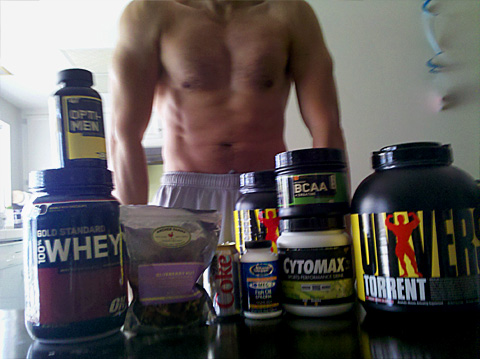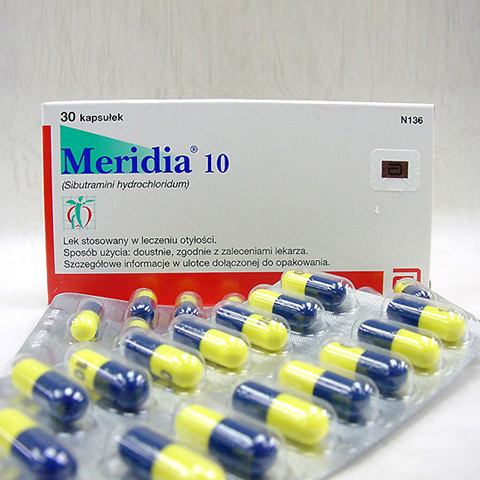
Folks, be careful with trying new supplements. There are basically very few supplements that actually work so, to be safe, stick with the true and tried brands and products. The products in my pic above are all made by highly respected companies that most experienced bodybuilders and regular fitness fanatics have been using for most of our entire fitness years. The following article should remind you to be careful with new products, but not deter you from using the time-tested ones like those in my Supplements page.
Melissa Healy, Los Angeles TimesWhen the Food & Drug Administration recalls your “all natural” dietary supplement for containing prescription pharmaceuticals, you may think that ensures a rapid restoration of the misbranded product to its wholesome natural state, right?
Wrong, says a new study.
Several months after supplements were recalled for being illegally laced with prescription drugs, researchers bought them off the shelves and from the online inventories of supplement retailers and checked whether they continued to contain the illegal substances for which they’d been recalled.
In two-thirds of cases, the supplements did.
And in more than 1 in 5 cases, the researchers found a second (or more) illegal ingredients in the recalled products. Either the supplement maker had doubled down in the wake of the FDA’s recall, adding more illegal ingredients to the product, or the FDA had failed to flag the additional adulteration in the first place.
Those findings came in a research letter published Tuesday in the Journal of the American Medical Association. More than half of adult Americans use nutritional supplements of some sort, mostly vitamin and mineral supplements. But products that often include herbal and botanical extracts and are marketed as bodybuilding, weight-loss or sexual enhancement aids are a multibillion-dollar business.
Unlike drugs, dietary supplements don’t have to be proved safe before being sold, and manufacturers can make general claims about health benefits. With limited powers to regulate nutritional supplements, the FDA in recent years has stepped up its recalls of nutritional supplements that are adulterated with prescription medications.
In the three years beginning January 2009, the agency demanded that 274 such supplements be withdrawn from the market until the prescription drugs they illegally contained was removed.
More often than not, however, the latest assessment suggests the FDA is failing to enforce its orders. The samples–roughly three-quarters of which were produced by American manufacturers–were drawn anywhere from eight to 52 months after recalls had been ordered. The average sample was taken about three years after a recall.
Of the 27 dietary supplements sampled by a team led by Dr. Pieter A. Cohen, 13 were sports-enhancement nutritional supplements, and 11 of them — 85 percent — continued to contain prescription ingredients (including anabolic steroids). Of nine weight-loss products sampled, six continued to contain prescription medications.
 “Natural” miracle cures peddled for weight loss can include any number of ingredients, ranging from unproven to outright harmful. The recalled products typically included sibutramine (marketed as Meridia) or phenolphthalein. Phenolphthalein is a laxative that is being withdrawn from over-the-counter medications as a possible carcinogen, and sibutramine was withdrawn from the market in 2010 after it found to have increased the risk of cardiovascular events such as stroke and heart attack.
“Natural” miracle cures peddled for weight loss can include any number of ingredients, ranging from unproven to outright harmful. The recalled products typically included sibutramine (marketed as Meridia) or phenolphthalein. Phenolphthalein is a laxative that is being withdrawn from over-the-counter medications as a possible carcinogen, and sibutramine was withdrawn from the market in 2010 after it found to have increased the risk of cardiovascular events such as stroke and heart attack.
Among the illegal substances found in the supplements were a sibutramine analog, benzyl sibutramine, that’s never been tested in humans.
Although dietary supplements marketed as “male enhancement” are frequently recalled for containing sildenafil (better known as Viagra), only one of the five such products sampled still had the prescription product in it.
If the FDA intends to protect the American public from products that could ply them with unknown prescription medications, Cohen wrote, it will need to increase its enforcement of supplement recalls and may need additional powers or resources to do the job.
(c)2014 Los Angeles Times
Visit the Los Angeles Times at www.latimes.com
